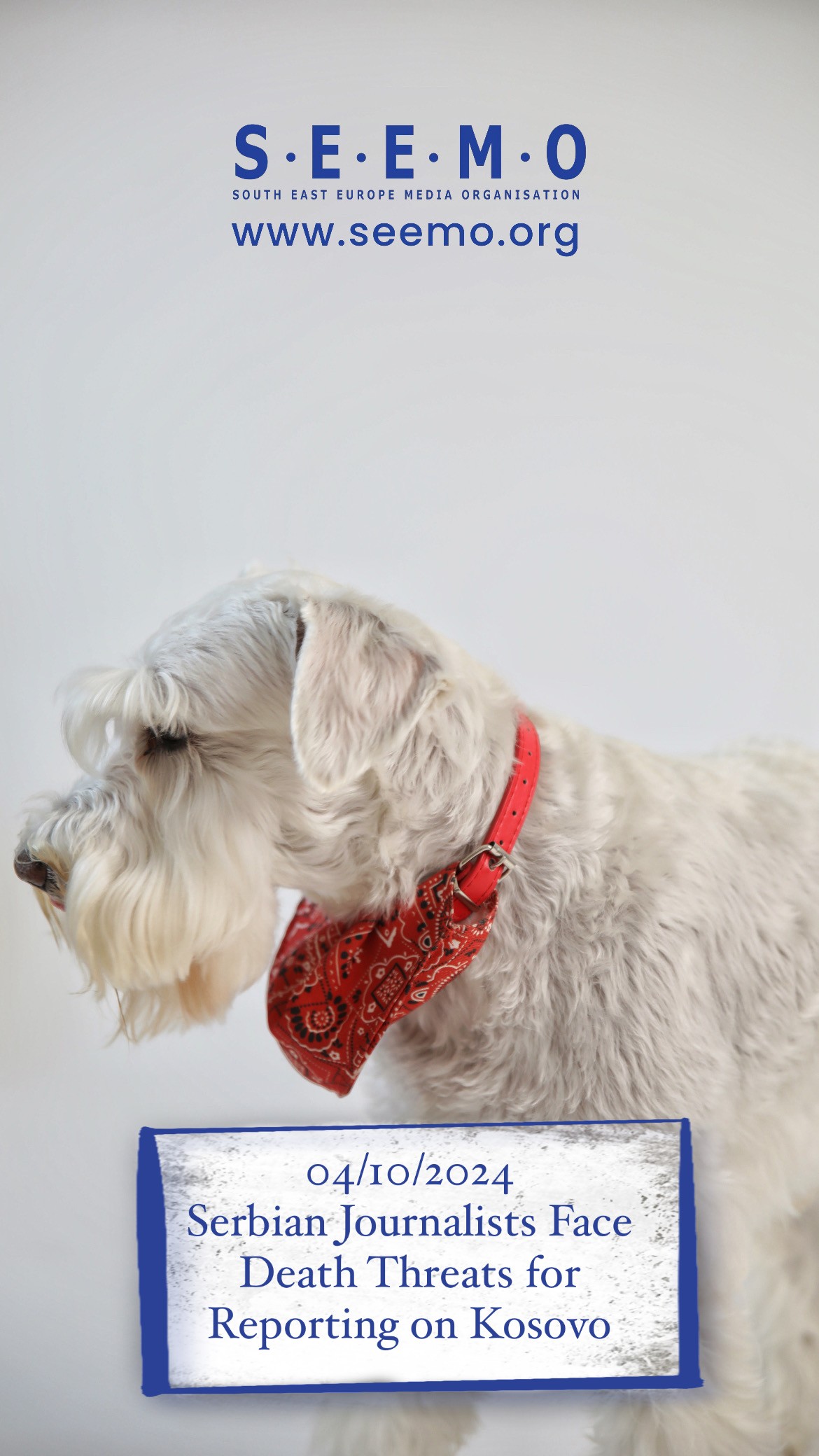On 30 September 2024, a disturbing email containing death threats was sent to the news agency Tanjug (https://www.tanjug.rs/) in Belgrade, Serbia, targeting its journalists. The sender explicitly warned that any Tanjug journalist entering Kosovo would be “shot in the back of the head.”
The email went on to state that the sender was closely following the Tanjug reporting, particularly its coverage of Kosovo and Albanian-related news, accusing Tanjug of spreading “lies.” The chilling message added that the movements of Tanjug journalists within Kosovo were being monitored, and they would face deadly consequences if they returned to Kosovo. This serious threat was immediately reported to the Serbian authorities, prompting a wider call for protection of the media workers involved.
In response, the Serbian Ministry of Information acted quickly, initiating contact with the High-Tech Crime Department within the Higher Public Prosecutor’s Office in Belgrade, Serbia, to investigate the origins of the email.
According to latest information from Belgrade, the threat that arrived on the editorial email of the Tanjug agency was sent from the territory of Kosovo, the Association of Journalists of Serbia (Udruženju novinara Srbije) was told by the Special Prosecutor’s Office for High-Tech Crime (VTK). It has been proven that the sender’s IP address belongs to those used by internet providers in Kosovo.
On the other side, authorities in Kosovo responded to these accusations by denying the claims of threats and asserting that Kosovo remains a democratic nation committed to press freedom. The Ministry of Internal Affairs in Kosovo stated that no such official report had been filed with their institutions regarding the alleged threats. The Kosovo Police also confirmed that, as of their latest updates, no reports of threats against Tanjug journalists had been received.
Although the Kosovo Ministry of Internal Affairs reports that the case was not reported to them, with the fact that the information about the threat was published, it is the obligation of the Ministry of Internal Affairs of Kosovo and the State Prosecutor of Kosovo to investigate the case. Bearing in mind the conflicting relationship between Belgrade and Pristina, it is important to examine all details. Considering that there is no direct cooperation between the police in Belgrade and Pristina, it is crucial that the information obtained by the Serbian police, including the details about the IP address, will be delivered to the police in Kosovo in order to carry out further investigations.
This case shows the necessity of urgent police cooperation between Belgrade and Pristina.
Journalists play a crucial role in providing independent reporting from Kosovo and their safety must be guaranteed to ensure that they can operate without fear of intimidation or violence. This incident serves as a reminder of the ongoing challenges faced by journalists in the Western Balkans and the importance of safeguarding press freedom in regions with political and ethnic tensions.
The South East Europe Media Organisation (SEEMO) condemns the death threats made against Tanjug journalists for their reporting on Kosovo, which included explicit threats of violence. Such acts of intimidation against media workers are unacceptable and undermine press freedom in the region. SEEMO urges the Kosovo government to take immediate action to investigate these threats, ensure the safety of journalists, and uphold media freedom.
SEEMO will be closely monitoring the situation and expects swift and decisive measures to prevent further threats or attacks on journalists.
South East Europe Media Organisation (SEEMO) is a regional non-governmental, non profit network of editors, media executives and leading journalists in Southeast, South, East and Central Europe. SEEMO members are in Albania, Armenia, Azerbaijan, Belarus, Bosnia-Herzegovina, Bulgaria, Croatia, Cyprus, Czech Republic, Estonia, Georgia, Greece, Hungary, Kazakhstan, Kosovo, Kyrgyzstan, Latvia, Lithuania, Malta, Moldova (with the territory of Transdnestria), Montenegro, North Macedonia, Poland, Romania, Russia, Serbia, Slovakia, Slovenia, Tajikistan, Turkmenistan, Türkiye / Turkey, Ukraine and Uzbekistan. Austria, Italy, Vatican and San Marino have a special status in SEEMO. SEEMO has over 3000 individual members, and additional media as corporate members.
#fyp #mediafreedom #seemo #freespeech #southeasteuropemediaorganisation #ngo #journalist #serbia #kosovo #tanjug #journalistattack #SEEMO #pressfreedom #mediafreedom #freemedia

